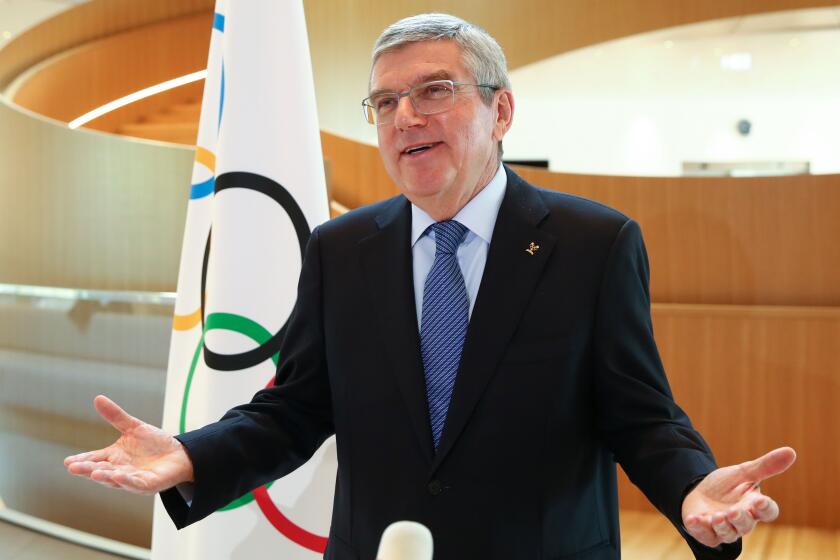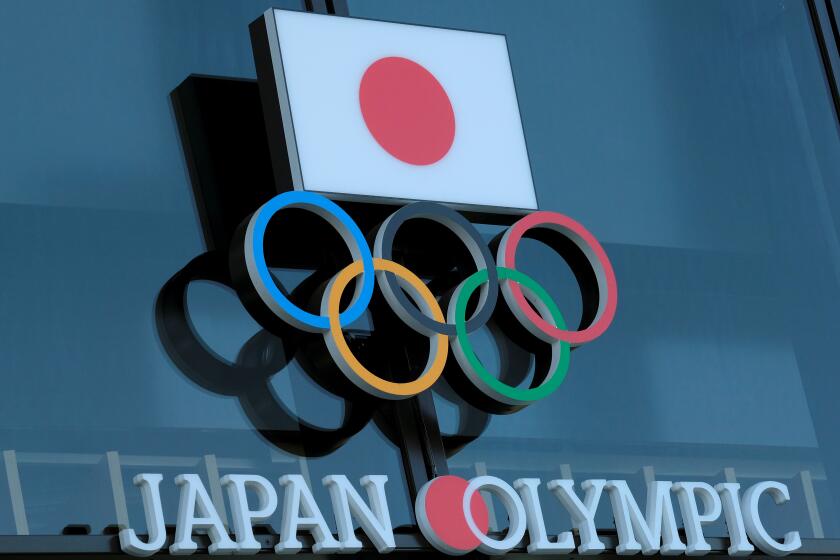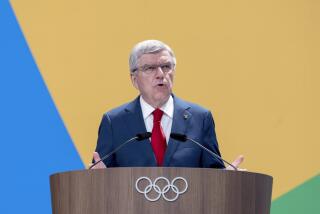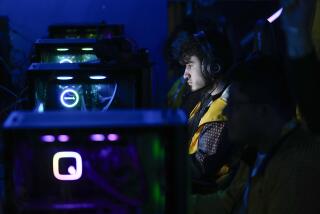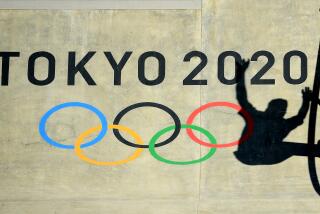Why the IOC and Japan agreed to postpone the 2020 Olympics
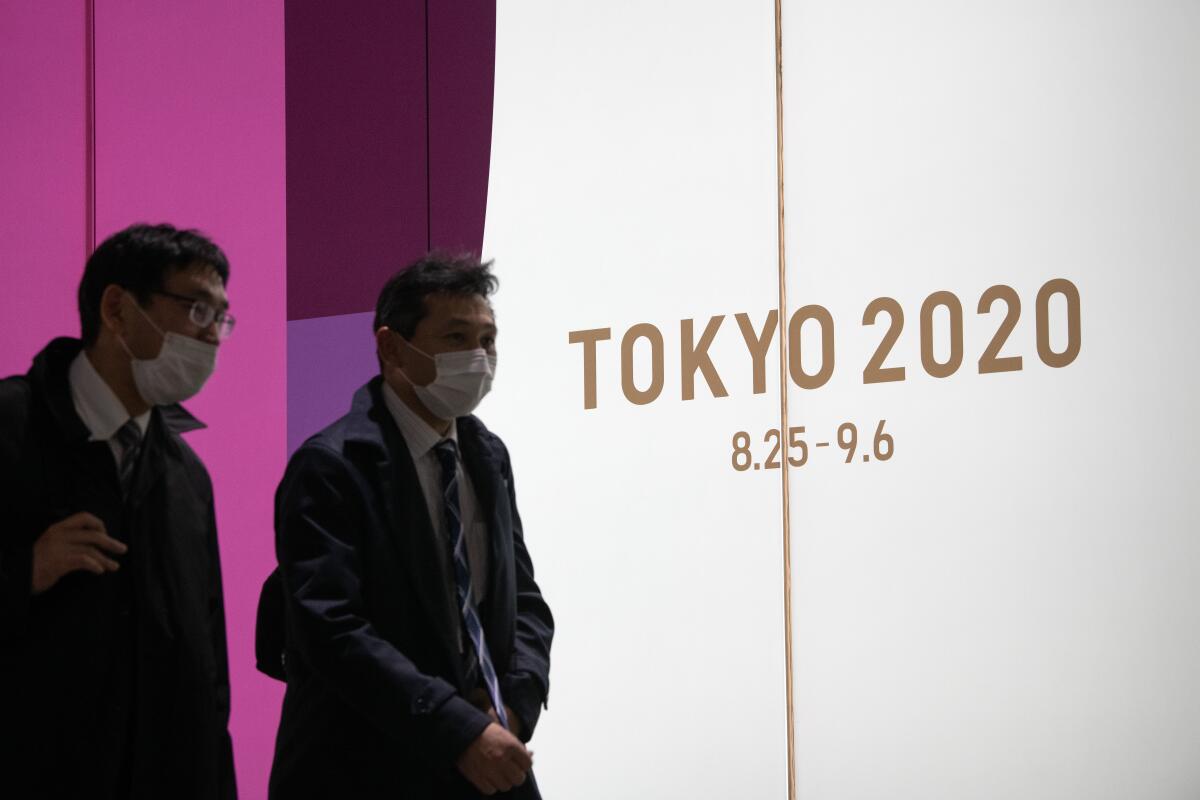
- Share via
Olympic leaders had spent weeks buying time, watching the spread of the coronavirus, hoping for signs of improvement while stubbornly insisting the 2020 Summer Games would proceed as planned.
The numbers looked promising in Tokyo, the host city, but Sunday morning brought a fresh batch of statistics that caught the International Olympic Committee’s attention.
COVID-19 was surging across Africa.
“This was a big worry for me, personally,” IOC President Thomas Bach said. “With the challenges many countries in Africa have to face already now, this would be a very dramatic development which would not only affect Africa but would affect the entire world.”
That was the moment the IOC’s hard-line stance began to soften, triggering a series of events that within a dizzying 48 hours led officials to announce the Tokyo Games will be postponed until next year.
“This situation changed very rapidly,” Bach said. “Our doubts were growing that the world would be ready for these Olympic Games.”
The IOC and Tokyo 2020 organizers have formed a task force to undertake the arduous job of finding a new date for the massive competition, no later than the summer of 2021.
The final decision will require cooperation from a tangle of broadcasters, corporate sponsors and 33 international federations that govern each sport. Though officials have vowed to reach a decision as soon as possible, Bach acknowledged they face a “huge jigsaw puzzle.”
Speaking during a teleconference Wednesday, the IOC president offered a glimpse at the accelerated timeline that led to the postponement.
For many, the IOC’s insistence on pushing ahead through the pandemic had been a source of frustration. Officials kept saying they were “fully committed” to a July 24 opening ceremony and encouraging athletes to “go ahead full-steam” with training, even as many of those athletes called for a change in plans.
A newly formed Olympics task force will determine a new date in 2021 for the Tokyo Games, but it won’t limit its options to the summer months.
If the situation in Africa served as an eye-opener, there were other disturbing trends in the U.S. and South America. IOC leaders acknowledge they had been focused on Japan, where the government was taking measures to contain the outbreak.
But conditions in the host city meant nothing if the competition drew thousands of athletes, officials and fans from countries where the coronavirus was far more prevalent.
Hours after Sunday’s updated statistics, the IOC’s executive board gathered for a meeting. Though cancellation was not an option, postponement was on the table and the board quickly issued a communique stating as much.
“New, alarming informations were coming in,” Bach said. “We saw more and more travel restrictions.”
The push for a delay gained momentum Monday morning when the World Health Organization warned of COVID-19’s “accelerating” spread. Longtime IOC member Dick Pound surmised that postponement was a done deal but others on the committee, including Vice President Anita DeFrantz, characterized that statement as premature.
However, no decision could be rendered without agreement from the hosts. IOC officials informed the Tokyo 2020 organizing committee that they had arranged for a teleconference with Japanese Prime Minister Shinzo Abe.
Full coverage of the International Olympic Committee’s decision to postpone the 2020 Tokyo Games until 2021 because of the coronavirus outbreak.
“We would like to propose to take a decision on the postponement of the Games,” Bach told the organizers.
Pressure from outside forces was building. In addition to athletes, several member nations were calling for a delay. The Canadian Olympic Committee announced it would not send a team to Tokyo in the summer.
Asked on Wednesday about this groundswell, Bach cited President Trump and other world leaders in explaining the plan to hold off on a decision until late spring in case the outbreak subsided.
“In the last couple of weeks, the measures of many governments, they were limited until middle of April, some beginning of May,” he said. “You have maybe seen the latest declarations there in the United States from President Trump about the prospect of middle of April their being able to lift many restrictions.”
Regardless, by the time Bach spoke with Abe on Tuesday, both sides had reached the same conclusion.
“I confirmed with President Bach that there will be no cancellation,” Abe said, the Kyodo News reported. “We agreed to hold the Tokyo Olympics and Paralympics in the summer of 2021 at the latest.”
The Olympic Games have been canceled three times, all because of war, but never postponed. But the coronavirus outbreak has changed that.
A joint statement was issued, marking only the fourth time in the history of the modern Olympics that the Games had stepped aside for outside forces, the other three occurrences prompted by World Wars.
The new planning task force has been dubbed “Here We Go” and will hold its first meeting Thursday. Creating an open space in an already crowded 2021 sports calendar will not be easy.
“That means this task force can consider the broader picture,” Bach said. “This is not just restricted to the summer months.”
After weeks of obstinence, it seems the IOC has found some flexibility.
More to Read
Go beyond the scoreboard
Get the latest on L.A.'s teams in the daily Sports Report newsletter.
You may occasionally receive promotional content from the Los Angeles Times.

